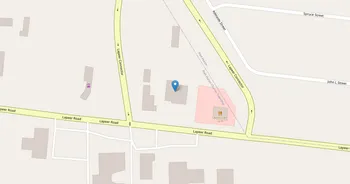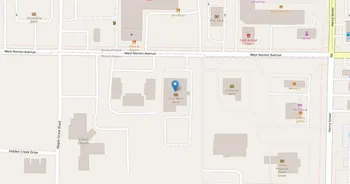Saginaw Chippewa Tribal College (SCTC) : Overview, Courses, Scholarships & Rankings
About Saginaw Chippewa Tribal College
Rooted in Anishinaabe values, Saginaw Chippewa Tribal College is known for blending Indigenous knowledge with strong academic foundations. Courses emphasize critical thinking, community leadership, environmental awareness, and cultural literacy, with plenty of one-on-one attention. Students find quiet study spaces, a helpful learning center, computer access, and a library that highlights Native voices. Advising, tutoring, and wellness support have a reputation for being personal and practical.
Campus life feels close knit and welcoming. You might join cultural gatherings, craft nights, service projects, or outdoor trips on mid-Michigan rivers and trails. The college town setting brings coffee shops, arts, and opportunities nearby. Career preparation leans into real community work, with internships linked to tribal departments, local nonprofits, and area businesses, plus guidance for transfer. The atmosphere is respectful, purpose driven, and proud of traditions that shape daily life.
Key Institutional Details
Contact & Profile
Academic & Institutional
Academic Programs & Fields of Study
Saginaw Chippewa Tribal College (SCTC) offers 4 degree programs across 4 major academic fields, graduating approximately 15 students annually. The most popular fields by graduate volume are Liberal Arts (1 programs, 6 graduates), Business (1 programs, 6 graduates), Cultural Studies (1 programs, 2 graduates) and Interdisciplinary (1 programs, 1 graduates). Explore program details, award levels, and graduate demographics below.
Liberal Arts (1 programs, 6 graduates)
Liberal Arts Education, General Studies and Humanities
| Program Name | Graduates | Gender Distribution | Award Levels | CIP Code |
|---|---|---|---|---|
| Liberal Arts and Sciences | 6 |
|
Associate's
|
24.0101 |
Business (1 programs, 6 graduates)
Business Administration, Marketing and Entrepreneurship
| Program Name | Graduates | Gender Distribution | Award Levels | CIP Code |
|---|---|---|---|---|
| Business Administration and Management | 6 |
|
Associate's
|
52.0201 |
Cultural Studies (1 programs, 2 graduates)
Cultural Anthropology, Ethnic Studies and Social Group Research
| Program Name | Graduates | Gender Distribution | Award Levels | CIP Code |
|---|---|---|---|---|
| American Indian and Native American Studies | 2 |
|
Associate's
|
05.0202 |
Interdisciplinary (1 programs, 1 graduates)
Cross-Disciplinary Studies and Integrated Research Programs
| Program Name | Graduates | Gender Distribution | Award Levels | CIP Code |
|---|---|---|---|---|
| Biological and Physical Sciences | 1 |
|
Associate's
|
30.0101 |
Tuition, Fees & Estimated Costs
Overview of tuition rates, housing, and other annual education expenses for undergraduate and graduate students
Financial Aid & Student Support
Summary of scholarships, grants, student loans, and financial aid statistics for undergraduate students
Student Success Metrics
Graduation rates and post-graduation earnings to help assess student outcomes and long-term value of education.
Loan Burden & Repayment Outcomes
Breakdown of loan repayment rates and student debt levels by income and dependency status.
Frequently Asked Questions
Find answers to the most common questions about Saginaw Chippewa Tribal College (SCTC)
How much does it cost to attend Saginaw Chippewa Tribal College (SCTC)?
The annual tuition at Saginaw Chippewa Tribal College (SCTC) is $2,210 for in-state students. When including room and board, books, and other expenses, the total estimated cost is approximately $3,670 for in-state students. Additional costs include room and board $11,484 (off-campus) and books and supplies $1,460.
Data based on IPEDS program completions for 2022-2023 academic year. Tuition and cost estimates are approximate and may not include all fees, personal expenses, or transportation costs.
What academic programs and degree levels does Saginaw Chippewa Tribal College offer?
Saginaw Chippewa Tribal College (SCTC) offers 4 academic programs across 4 major fields of study, with available degree levels: Associate's.
Most popular program areas include:
- Liberal Arts Education, General Studies and Humanities (1 programs)
- Business Administration, Marketing and Entrepreneurship (1 programs)
- Cultural Anthropology, Ethnic Studies and Social Group Research (1 programs)
- Cross-Disciplinary Studies and Integrated Research Programs (1 programs)
Data based on IPEDS program completions for 2023-2024 academic year. Numbers reflect programs where students graduated, not all offered programs.
What financial aid and scholarships are available at Saginaw Chippewa Tribal College?
Saginaw Chippewa Tribal College (SCTC) provides financial aid to 6% of first-time, full-time students, with average grants of $4,917 and average loans of $0.
Average financial aid amounts by type:
- Pell grants: $4,347
- State/Local grants: $1,387
- Institutional grants: $332
The university supports 8 students with grants and 0 students with loans annually.
Data based on IPEDS for 2022-2023 academic year. Financial aid amounts and percentages may vary by program, enrollment status, and individual circumstances.
What is the average salary for Saginaw Chippewa Tribal College graduates?
Saginaw Chippewa Tribal College (SCTC) graduates earn a median salary of $27,389 after 6 years.
Data based on IPEDS for 2022-2023 academic year. Salary data reflects graduates who received federal financial aid (approximately 60% of all graduates). Actual earnings may vary significantly based on program, location, and individual circumstances.
Related Universities




Found something useful? Help others discover it too! Share with friends, on social media, or save for later - every share helps someone find the information they need.